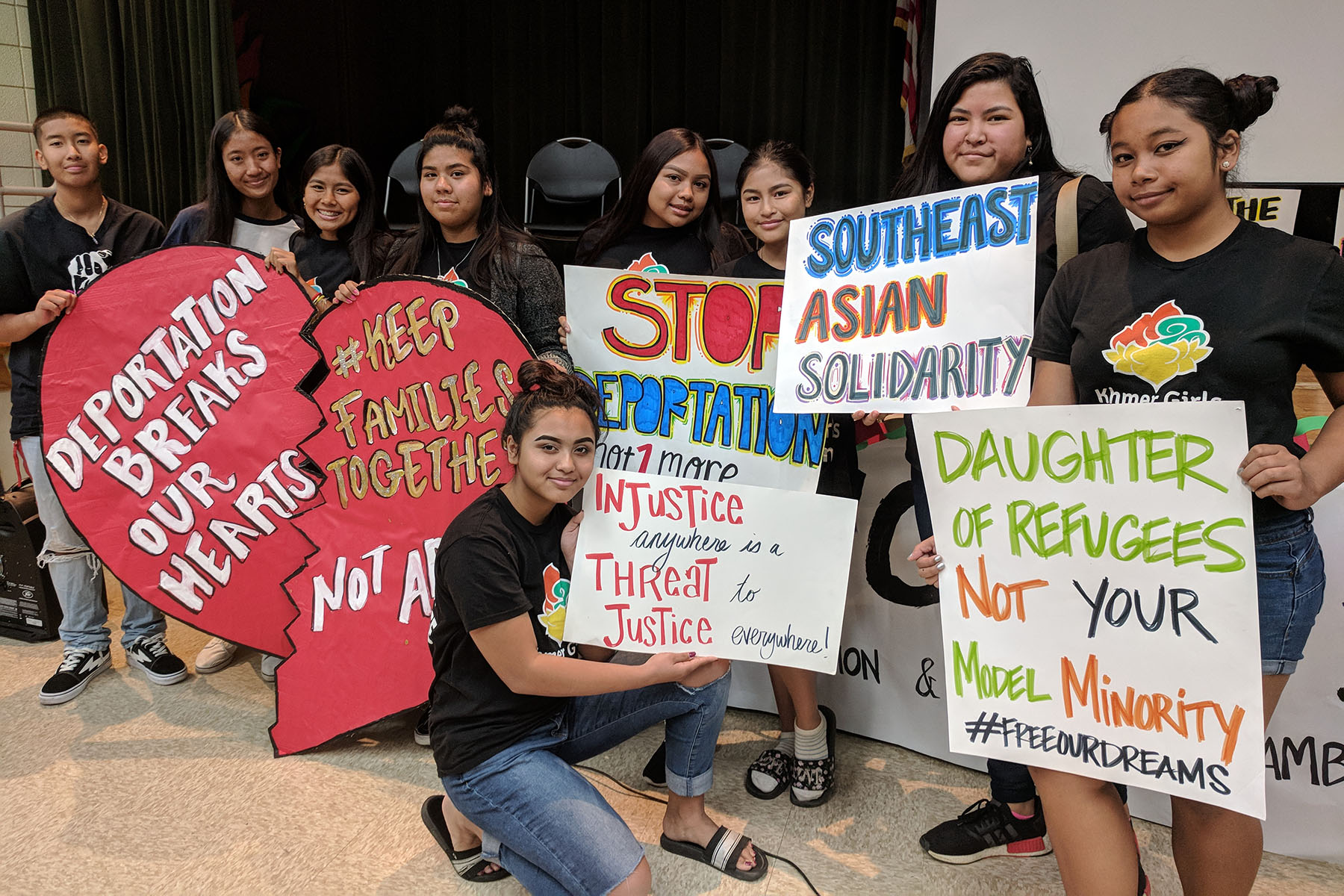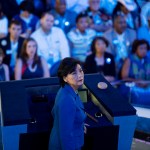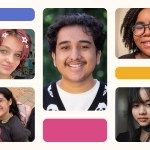Sophya Chhiv had what she now describes as an “aha moment” back in the ninth grade in 1997. The daughter of Cambodian refugees who settled in Long Beach, California, she was active in an organization that focused on reproductive health outreach to teens in the Asian American and Pacific Islander (AAPI) community. But Chhiv and her peers knew that centering that cause was not enough to address the complex web of issues affecting the city’s Southeast Asian American youth. They needed to expand their advocacy.
“There’s more than just reproductive health,” Chhiv said. “We’re up against so much more here in Long Beach. Our young people are being criminalized. Our schools are not supporting us. There’s punitive policies that are in place. And we’re going through housing issues, unemployment issues, immigrant and refugee rights.”
To work toward gender, racial and economic justice, they formed Khmer Girls in Action (KGA), a nod to the term for the Cambodian language and people. Since KGA’s founding, the young women participating in the organization have successfully campaigned to establish wellness centers in schools, lower punitive discipline rates and give students a say in the city budget. Through culturally responsive programming, the organization gives Southeast Asian American youth the leadership training to become politically empowered and advocate for themselves and their communities.
For its inaugural campaign, KGA collected data about the prevalence of sexual harassment in Long Beach schools, presenting their research and recommendations about improving the problem to school officials.
“So all of that was definitely like an aha moment for me, where I felt like this is something I really want to do because I saw the impact that it had on my life and then also on the life of other young women,” Chhiv said.
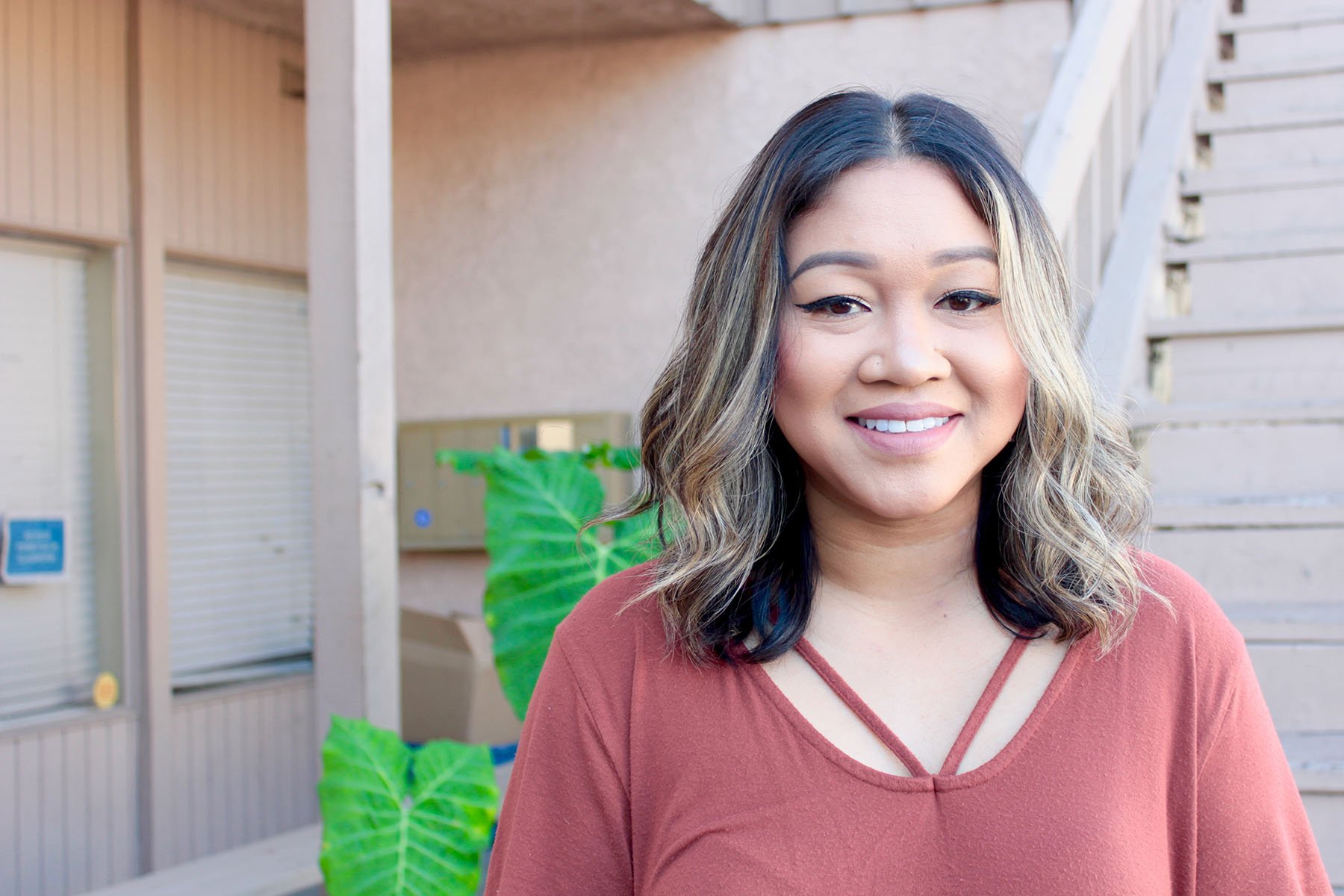
Long Beach, a Southern California city of nearly a half-million people, became home to the densest population of Cambodians outside Southeast Asia after refugees fleeing war, genocide and an autocratic regime settled there by the thousands starting in the 1970s, now representing about four percent of residents. Chhiv recalls being “a quiet young girl” who felt compelled to take social action because she had seen her refugee parents struggle with post-traumatic stress disorder, housing insecurity and limited employment options.
Joy Yanga, KGA’s communications director, said that the girls who cofounded the group not only made classrooms safer for subsequent students but also challenged perceptions when they focused their first campaign on sexual harassment.
“I think that was a pretty big deal for young women from immigrant refugee communities who are oftentimes stereotyped as submissive or docile or not being vocal like that,” she said. “That’s an Asian stereotype, but they were able to break that mold and fight back and say, ‘This is not acceptable. Schools are supposed to be a safe place for young people.’”
Today, Chhiv is KGA’s interim executive director, a role that allows her to continue the work she began 27 years ago as a group cofounder. KGA is still an organization where Southeast Asian American young people can deepen their connection to their culture and community through activism during high school, according to its leaders. They start off learning the fundamentals of gender justice, reproductive rights and advocacy work. From there, they explore their identity, culture and history — telling their stories and fostering relationships with each other during the process. They then move into organizing work, with the chance to spearhead campaigns.
“Political empowerment is super important for any community but especially the Cambodian-American community because we have been marginalized ever since we’ve arrived in this country,” said Cheryl Yin, an assistant professor of anthropology at Carleton College in Minnesota. The daughter of Cambodian-American refugees, Yin was born in the United States and grew up in Long Beach. She said she admires KGA’s work, as it provides an important outlet for activism that was unavailable to the first generation of refugee youth in the city.
Before Jenna Sek, 18, joined KGA as a ninth grader at Wilson High School in Long Beach, she was already familiar with its work. She signed up for the group precisely because she wanted to improve her understanding of Cambodian culture and history.
“We learned about the war, what happened in the refugee camps, the waves of immigrants coming to America from Southeast Asia,” said Sek, now a student at California State University, Long Beach. “It really opened my eyes and opened a bunch of topics for me to ask my mom. It was kind of like a bonding experience for all of us in the group, like, ‘OK, this is why our parents are like this. This is what our parents experienced.’”
Current KGA participants face challenges similar to those that their counterparts in the early years of the group experienced, Chhiv said. Only, gentrification has made a lack of affordable housing a particular problem. During the 2021-2022 school year, Sek addressed the Long Beach City Council about the importance of providing equitable housing in the city, she said. Students in the group are also concerned about immigration policy, mental health, career options and college preparedness, Chhiv added.
KGA provides students with academic support, as many have immigrant parents with language barriers that make it difficult to understand the intricacies of the school system and the requirements needed for admission to the state’s top universities. Since Southeast Asian Americans have lower high school and college graduation rates than the national average, such interventions are all the more pressing, KGA officials say.
Helping students and their families navigate trauma and the immigration system are key issues for KGA. When youth have relatives facing deportation, the organization refers them to legal experts who offer pro bono services. It also held a forum called “Not Home for the Holidays” to raise awareness about deportations in Long Beach’s Southeast Asian American community.
Amy Horn’s interest in helping her loved ones drew her to KGA when she was a student during the aughts at Long Beach Polytechnic High School near the city’s Cambodia Town district. Gang violence ensnared some of her family and friends, putting them at risk of being deported to an unfamiliar country since they were born in Cambodia but raised in the United States. Although Horn set out to advocate for the Cambodian-American youth in her life impacted by the school-to-prison pipeline, in KGA she found an organization where she could engage in social action and explore her identity. As an adult, Horn joined KGA as a staff member, transitioning out of her role as a field organizer last year.
“A lot of young people during my generation were pretty much seeking the truth of their background and also figuring out their identity here in the States and trying to balance that, so KGA was definitely a space of healing, a space of empowerment, of knowledge, and relationship-building with our families again,” she said.
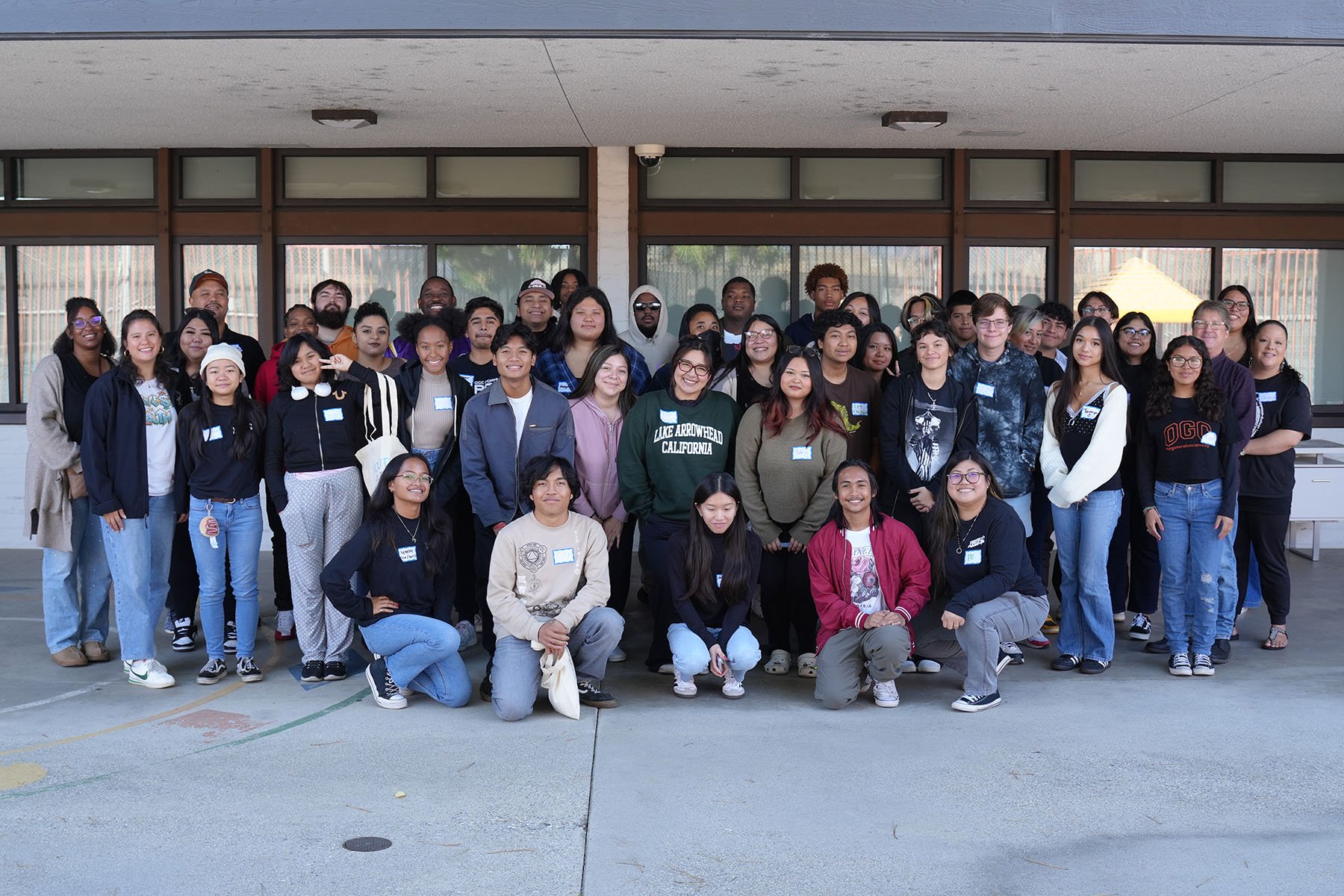
Although her parents told her about the Khmer Rouge regime when she was a child, Yin said many parents understandably find this history too painful to revisit. An estimated 60 percent of Cambodians who lived through the totalitarian regime during the 1970s struggle with their mental health. This inadvertently leads to intergenerational trauma, she explained, because children recognize that their parents are suffering even if they don’t understand the root cause. The children of refugees might grow up quickly in other ways, too, such as taking on responsibilities like working and paying bills to help their families stay afloat.
As a child, Horn resented that she had to interpret for her parents in a variety of situations because they did not speak English, she said. But, in KGA, she put the many years she spent interpreting and translating for her family to use by helping community members who needed language assistance. Once she learned more about Cambodian history and culture, particularly the mass bloodshed and years of strife that led tens of thousands of refugees to seek a safe haven in the United States, she felt more compassion for her parents and ashamed for sometimes lashing out at them.
“It is an organization that can really support breaking that cycle of generational trauma, generational violence, gang violence,” Horn said of KGA. “It’s really dismantling the pain that families go through.”
Partnering with local schools, especially Long Beach Polytechnic and Wilson High Schools, gives KGA the opportunity to pay close attention to students’ needs. The group holds its annual wellness week on the Poly High campus, and students use the event as an opportunity to share their concerns. KGA works to address the needs that youth highlight during wellness week. Throughout the year, however, it challenges students directly involved in its programs to apply a political lens to their experiences in and out of school, including those related to youth services, housing and health care.
“They get to build their political consciousness and critical thinking skills, so that they can understand these larger issues and make the larger connection and see how important it is to address these issues and what their role would be in doing that, and then we are able to really offer them ways that they can get involved — through the campaigns, through our electoral work, through phone banking,” Chhiv said.
Last year, Long Beach youth helped to shape the city’s first participatory budget process, which gave them the chance to choose how $300,000 in public monies should be spent on areas including youth services, climate change interventions and public health. As the anchor organization for the Invest in Youth Coalition, KGA oversaw the participatory budgeting pilot process in collaboration with city agencies and other partners, including Long Beach Forward, a nonprofit that confronts racial and income inequities.
“Khmer Girls in Action has led so much of the work to actually move policies and systems change,” said James Suazo, executive director of Long Beach Forward. “They’ve been really integral to ensuring that Southeast Asian, Cambodian young people, and particularly Cambodian young women, have been part of these efforts and also have the knowledge and skills to be leaders in their community.”
One KGA alum now works as a community organizer on safe and affordable housing issues for Long Beach Forward, Suazo said, adding that it’s important to give young people opportunities to give back to their communities to allow them to be “the best potential versions of themselves.”
Students in KGA work to educate adults in their communities about important ballot measures. In 2022, they supported a proposition to enshrine reproductive freedom in the California constitution, an initiative that ultimately passed. During the aughts, youth in the group urged voters to oppose two propositions that would have jeopardized abortion access for teenagers by requiring parental notification. Both failed.
In 2015, KGA celebrated a successful campaign to get wellness centers into Long Beach public schools because of concerns about reproductive health and mental health in their community. The group also branched beyond that, participating in the Every Student Matters campaign to encourage Long Beach school officials to explore restorative justice practices instead of relying on punitive discipline alone to address student misconduct. The school board voted to reform its disciplinary practices in the wake of the campaign, which a mutli-racial coalition led to victory.
Although KGA centers Southeast Asian-American young women, the group champions causes that affect youth from a variety of ethnic and gender backgrounds. It made a point to launch programming for young men when the young women in the organization raised concerns about the toxic masculinity and patriarchy they encountered in their personal lives, Yanga said.
“It was also much needed to expand the program to help young Southeast Asian American men understand who they are, too, because, in doing so, we create a safer community for all, and it helps to include young men in dismantling patriarchy,” she said. “We need them to fight against certain gender norms in order to liberate young women from oppression.”
Young men in the program also take action to improve the school system, where they’re vulnerable to being overlooked, Yanga said. Over the past 27 years, she estimates that KGA has reached 800 students through its immediate leadership pathway and reached thousands more through its public campaigns. She celebrates the group’s achievements but also pointed out that it has yet to accomplish a major goal — securing a larger property to help it better meet the needs of students and establish the first Long Beach Youth Movement Center.
“We want to be able to say that youth belong here,” Yanga said. “Immigrant refugee communities belong here, and a multicultural population of young people deserve a place to stay.”
Whether those youth remain in the area or pursue higher education and professional opportunities elsewhere, they take the leadership skills and political consciousness they developed in KGA with them, Chhiv said.
“They’re able to understand how things work systemically, challenge things in their lives and really feel empowered wherever they go,” she said. “We have people who continue to build off of the core values that were created in this space.”
